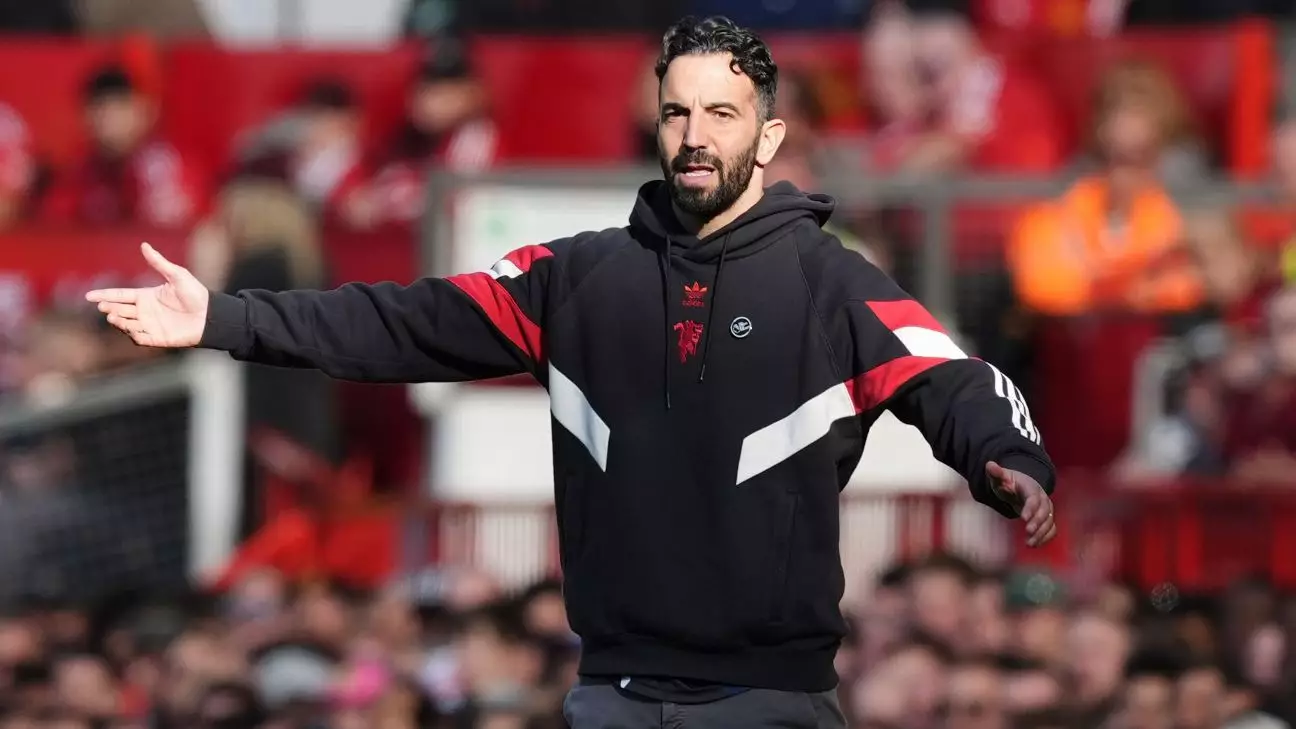In the aftermath of a lackluster Manchester derby that ended in a disappointing goalless draw, the tension between passion and pragmatism in football has re-entered the spotlight. Ruben Amorim, the Sporting CP manager who weighed in on Gary Neville’s scathing critique of the match, argues that context matters. He suggests that what might seem like a lack of ambition is often a reflection of the burden placed on teams dealing with pressure and expectations, particularly as both Manchester clubs navigate through challenging seasons. This brings forth an essential question: at what point do teams prioritize results over the thrill and artistry that football promises to deliver?
Critiqued and Critic, A Circular Dance
Neville’s commentary touched a nerve, not just for its bluntness but for what it represents about the current state of football strategy. His assertion that teams are becoming risk-averse resonates deeply in an era where managers often emphasize defensive solidity over adventurous play. Amorim’s dismissal of Neville’s critique reflects a growing trend within football circles—an unwillingness to engage with harsh truths and a tendency to deflect criticism. “It’s easy to sit in a studio and criticize,” Amorim inferred, echoing a sentiment many managers share when confronted with external pressure. This incident exemplifies a broader debate within the sport about accountability, passion, and the very essence of the game.
A Question of Philosophy
The anxiety over innovation in football tactics seems to stem from a fear of the unknown. When similarly established teams like Manchester City and Manchester United are navigating through disappointing campaigns, it’s understandable that they may default to more cautious approaches in high-stakes matches. However, the increasing moral panic about ‘playing it safe’ raises concerns about the future of competitive sports. Companies, schools, and even communities thrive on the notion of calculated risk; could football, too, benefit from a more substantial embrace of creative risk-taking? Champions aren’t born from fear, but rather from courageous ventures and unexpected brilliance on the pitch.
The Role of Rivalry in Performance
While both teams have arguably been out of form, the essence of a Manchester derby traditionally ignites a spark of energy and competitive spirit that, in this instance, seemed subdued. Amorim rightly highlights that the stakes can distort the narrative of games—especially when clubs are not contending for the title or European glory. Historically, rivalry has fueled players to outshine themselves. In this instance, the absence of such drive draws criticism not just from pundits but fans hungry for excitement and narrative depth in their beloved sport. After all, aren’t the most memorable moments of football shaped by dramatic interventions and unexpected undertones?
Searching for Hope Amidst the Critique
In an age dominated by analytics and statistical evaluations, perhaps the real solution lies in rekindling the fiery passion that not only captures hearts but shapes the storyline of the beautiful game. As both Manchester clubs await vital fixtures in the league and European competitions, the question remains: how can they rebirth the relentless pursuit of artistry on the pitch? Embracing creativity and unshackling themselves from the fear of failure might just be the recipe to not only captivate their audiences but to restore the glory days that many fans crave so desperately. The journey toward this revival is rich with complexity, yet its essence is simple: football must dare to be daring once again.

